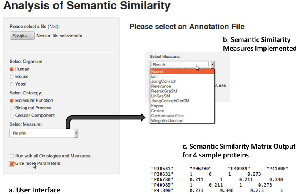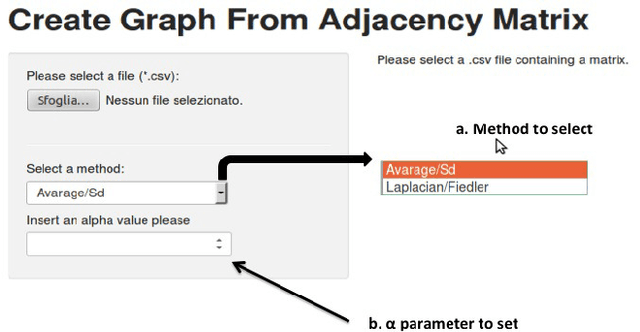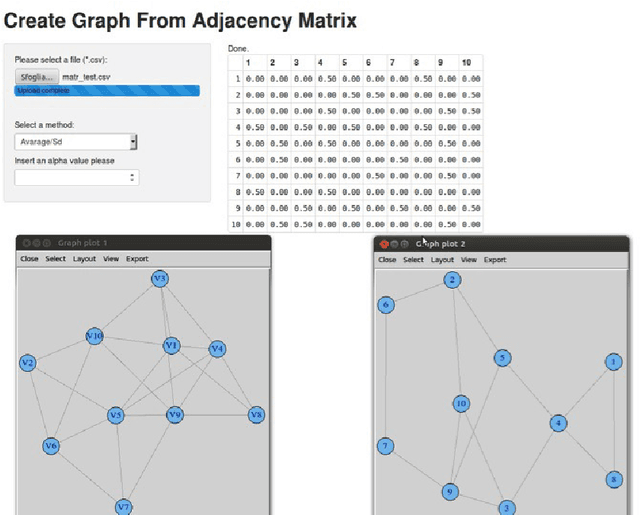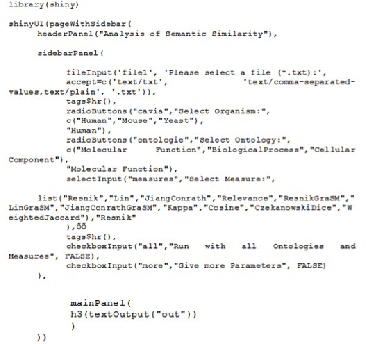Pierangelo Veltri
A Usable GAN-Based Tool for Synthetic ECG Generation in Cardiac Amyloidosis Research
Jan 13, 2026Abstract:Cardiac amyloidosis (CA) is a rare and underdiagnosed infiltrative cardiomyopathy, and available datasets for machine-learning models are typically small, imbalanced and heterogeneous. This paper presents a Generative Adversarial Network (GAN) and a graphical command-line interface for generating realistic synthetic electrocardiogram (ECG) beats to support early diagnosis and patient stratification in CA. The tool is designed for usability, allowing clinical researchers to train class-specific generators once and then interactively produce large volumes of labelled synthetic beats that preserve the distribution of minority classes.
Context-Gated Cross-Modal Perception with Visual Mamba for PET-CT Lung Tumor Segmentation
Oct 31, 2025Abstract:Accurate lung tumor segmentation is vital for improving diagnosis and treatment planning, and effectively combining anatomical and functional information from PET and CT remains a major challenge. In this study, we propose vMambaX, a lightweight multimodal framework integrating PET and CT scan images through a Context-Gated Cross-Modal Perception Module (CGM). Built on the Visual Mamba architecture, vMambaX adaptively enhances inter-modality feature interaction, emphasizing informative regions while suppressing noise. Evaluated on the PCLT20K dataset, the model outperforms baseline models while maintaining lower computational complexity. These results highlight the effectiveness of adaptive cross-modal gating for multimodal tumor segmentation and demonstrate the potential of vMambaX as an efficient and scalable framework for advanced lung cancer analysis. The code is available at https://github.com/arco-group/vMambaX.
Towards medical AI misalignment: a preliminary study
May 22, 2025Abstract:Despite their staggering capabilities as assistant tools, often exceeding human performances, Large Language Models (LLMs) are still prone to jailbreak attempts from malevolent users. Although red teaming practices have already identified and helped to address several such jailbreak techniques, one particular sturdy approach involving role-playing (which we named `Goofy Game') seems effective against most of the current LLMs safeguards. This can result in the provision of unsafe content, which, although not harmful per se, might lead to dangerous consequences if delivered in a setting such as the medical domain. In this preliminary and exploratory study, we provide an initial analysis of how, even without technical knowledge of the internal architecture and parameters of generative AI models, a malicious user could construct a role-playing prompt capable of coercing an LLM into producing incorrect (and potentially harmful) clinical suggestions. We aim to illustrate a specific vulnerability scenario, providing insights that can support future advancements in the field.
Leveraging graph neural networks for supporting Automatic Triage of Patients
Mar 11, 2024Abstract:Patient triage plays a crucial role in emergency departments, ensuring timely and appropriate care based on correctly evaluating the emergency grade of patient conditions. Triage methods are generally performed by human operator based on her own experience and information that are gathered from the patient management process. Thus, it is a process that can generate errors in emergency level associations. Recently, Traditional triage methods heavily rely on human decisions, which can be subjective and prone to errors. Recently, a growing interest has been focused on leveraging artificial intelligence (AI) to develop algorithms able to maximize information gathering and minimize errors in patient triage processing. We define and implement an AI based module to manage patients emergency code assignments in emergency departments. It uses emergency department historical data to train the medical decision process. Data containing relevant patient information, such as vital signs, symptoms, and medical history, are used to accurately classify patients into triage categories. Experimental results demonstrate that the proposed algorithm achieved high accuracy outperforming traditional triage methods. By using the proposed method we claim that healthcare professionals can predict severity index to guide patient management processing and resource allocation.
A novel Network Science Algorithm for Improving Triage of Patients
Oct 09, 2023Abstract:Patient triage plays a crucial role in healthcare, ensuring timely and appropriate care based on the urgency of patient conditions. Traditional triage methods heavily rely on human judgment, which can be subjective and prone to errors. Recently, a growing interest has been in leveraging artificial intelligence (AI) to develop algorithms for triaging patients. This paper presents the development of a novel algorithm for triaging patients. It is based on the analysis of patient data to produce decisions regarding their prioritization. The algorithm was trained on a comprehensive data set containing relevant patient information, such as vital signs, symptoms, and medical history. The algorithm was designed to accurately classify patients into triage categories through rigorous preprocessing and feature engineering. Experimental results demonstrate that our algorithm achieved high accuracy and performance, outperforming traditional triage methods. By incorporating computer science into the triage process, healthcare professionals can benefit from improved efficiency, accuracy, and consistency, prioritizing patients effectively and optimizing resource allocation. Although further research is needed to address challenges such as biases in training data and model interpretability, the development of AI-based algorithms for triaging patients shows great promise in enhancing healthcare delivery and patient outcomes.
A web-based tool to Analyze Semantic Similarity Networks
Dec 21, 2014



Abstract:In computational biology, biological entities such as genes or proteins are usually annotated with terms extracted from Gene Ontology (GO). The functional similarity among terms of an ontology is evaluated by using Semantic Similarity Measures (SSM). More recently, the extensive application of SSMs yielded to the Semantic Similarity Networks (SSNs). SSNs are edge-weighted graphs where the nodes are concepts (e.g. proteins) and each edge has an associated weight that represents the semantic similarity among related pairs of nodes. The analysis of SSNs may reveal biologically meaningful knowledge. For these aims, the need for the introduction of tool able to manage and analyze SSN arises. Consequently we developed SSN-Analyzer a web based tool able to build and preprocess SSN. As proof of concept we demonstrate that community detection algorithms applied to filtered (thresholded) networks, have better performances in terms of biological relevance of the results, with respect to the use of raw unfiltered networks.
 Add to Chrome
Add to Chrome Add to Firefox
Add to Firefox Add to Edge
Add to Edge